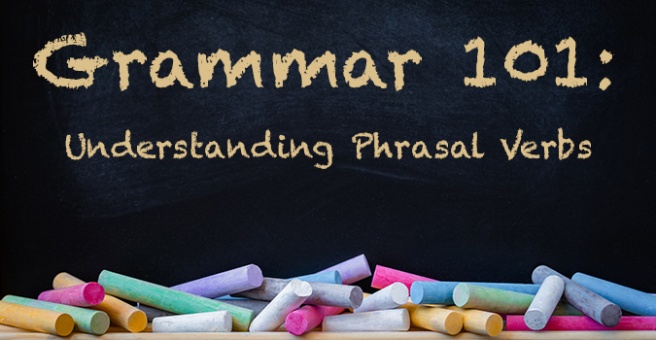With roots in Gaelic, Arabic, Latin, French, and Saxon it is no wonder that the English language can be tricky to learn. While no language is easy to learn, English, with its multitudinous rule exceptions and quirky word spelling, can be especially difficult to master. One particularly challenging aspect of the English language is phrasal verbs.

According to the Oxford English dictionary, a phrasal verb is “a verb that is made up of a main verb together with an adverb or preposition or both. Typically, their meaning is not obvious from the meanings of the individual words themselves.”* Phrasal verbs may have a straightforward spelling, but unlike homophones, phrasal verbs tend not to provide us with contextual clues to provide clarity or meaning. Read more here…






